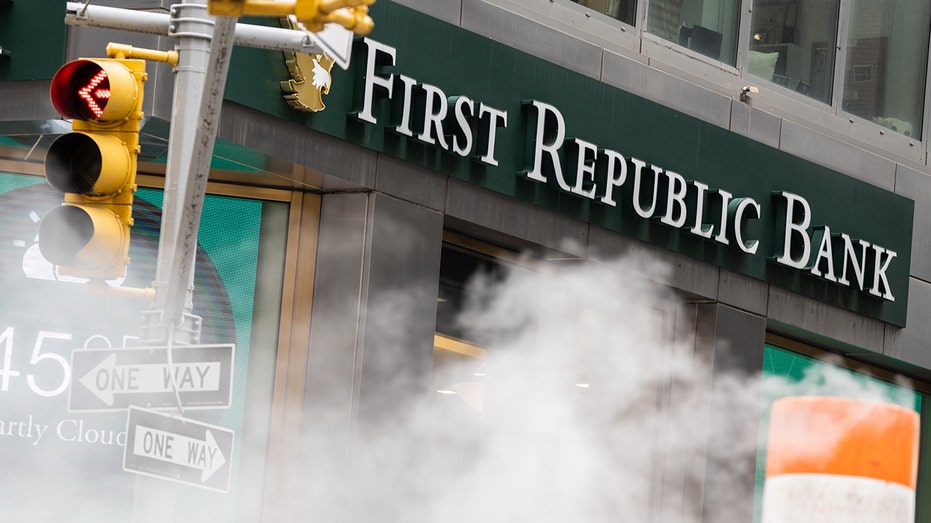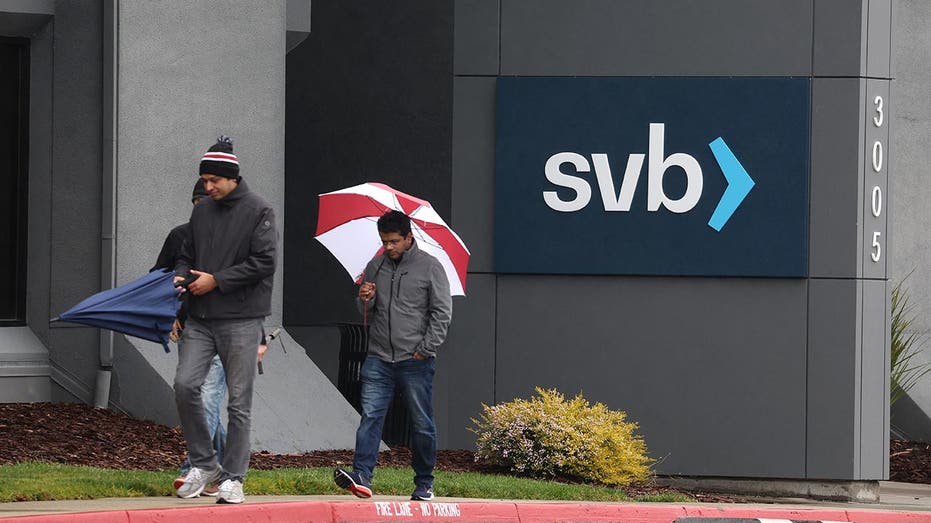First Republic Bank reportedly exploring potential sale after credit downgrade
Silicon Valley Bank fallout continues to roil financial markets
Fed stepping in to fend off banking crisis 'delays the inevitable': Octavio Marenzi
Opimas LLC CEO Octavio Marenzi discusses whether the banking crisis has been contained after Silicon Valley Bank and Credit Suisse received financial support on 'Varney & Co.'
First Republic Bank, a regional lender whose shares have suffered a record loss amid days of financial market turmoil, is reportedly exploring various options, including a potential sale.
The San Francisco-based bank is also weighing other alternatives, including shoring up liquidity, according to Bloomberg News, citing people familiar with the matter. No decision has been reached, and the bank could still choose to remain independent, the people said.
A spokesperson for First Republic Bank declined to comment on the matter.
The bank's shares were temporarily halted from trading on the New York Stock Exchange due to volatility.
First Republic announced Sunday that it received additional liquidity from the Federal Reserve and JPMorgan Chase. The bank — which boasts $213 billion in assets — has about $70 billion in unused liquidity after the cash infusion. Still, its stock plummeted another 20% on Thursday to $20.65 per share, a fresh decade low. The stock is down more than 60% over the past week.
ONE YEAR INTO ITS INFLATION FIGHT, THE FED FACES A MURKY FUTURE

First Republic, which has more than 80 branches across the U.S., contacted customers over the weekend in an attempt to reassure them about its health. (Jeenah Moon/Bloomberg via Getty Images / Getty Images)
"The additional borrowing capacity from the Federal Reserve, continued access to funding through the Federal Home Loan Bank, and ability to access additional financing through JPMorgan Chase & Co. increases, diversifies and further strengthens First Republic’s existing liquidity profile," the bank said Sunday in a statement.
First Republic, which has more than 80 branches across the U.S., contacted customers over the weekend in an attempt to reassure them about its health.
"In light of recent industry events, the last few days have caused uncertainty in the financial markets," executives wrote in an email to clients obtained by FOX Business. "We want to take a moment to reinforce the safety and stability of First Republic, reflected in the continued strength of our capital, liquidity and operations."

The concerns at First Republic and other midsize regional banks began after the historic failure of Silicon Valley Bank — the 16th largest in the country — on Friday afternoon following a liquidity crunch. (Justin Sullivan/Getty Images / Getty Images)
S&P Global Ratings and Fitch Ratings cut First Republic to junk earlier this week amid concern that clients pull holdings from the lender.
The concerns at First Republic and other midsize regional banks began after the historic failure of Silicon Valley Bank — the 16th largest in the country — on Friday afternoon following a liquidity crunch. It marked the largest U.S. bank failure since the global financial crisis in 2008.
MORTGAGE RATES POST BIG DECLINE AMID SVB FALLOUT
SVB, which largely catered to tech companies, venture capital firms and high-net-worth individuals, saw a huge boom in deposits during the pandemic, with its assets surging from $56 billion in June 2018 to $212 billion in March 2023. The bank responded by investing a large chunk of that cash into long-term U.S. Treasury bonds and other mortgage-backed securities. However, that strategy backfired when the Fed embarked on the most aggressive interest-rate hike campaign since the 1980s and the value of those securities tumbled.
That coincided with a decline in available funding for startups, which started drawing down more of their money to cover their expenses, forcing the lender to sell part of its bond holds at a steep $1.8 billion loss. When depositors realized that SVB was in a precarious financial situation, a bank run ensued.

When depositors realized that SVB was in a precarious financial situation, a bank run ensued. (Justin Sullivan/Getty Images / Getty Images)
There are other midsize banks that could be at risk.
CLICK HERE TO GET THE FOX BUSINESS APP
"While SVB’s duration mismatch and its concentration of undiversified depositors may seem unique, numerous U.S. banks have increased their investments in held-to-maturity securities since the onset of the pandemic and many regional banks have similarly undiversified portfolios — representing a notable risk of deposit outflows without a proactive and targeted policy response," said Gregory Daco, a chief economist at EY.





















